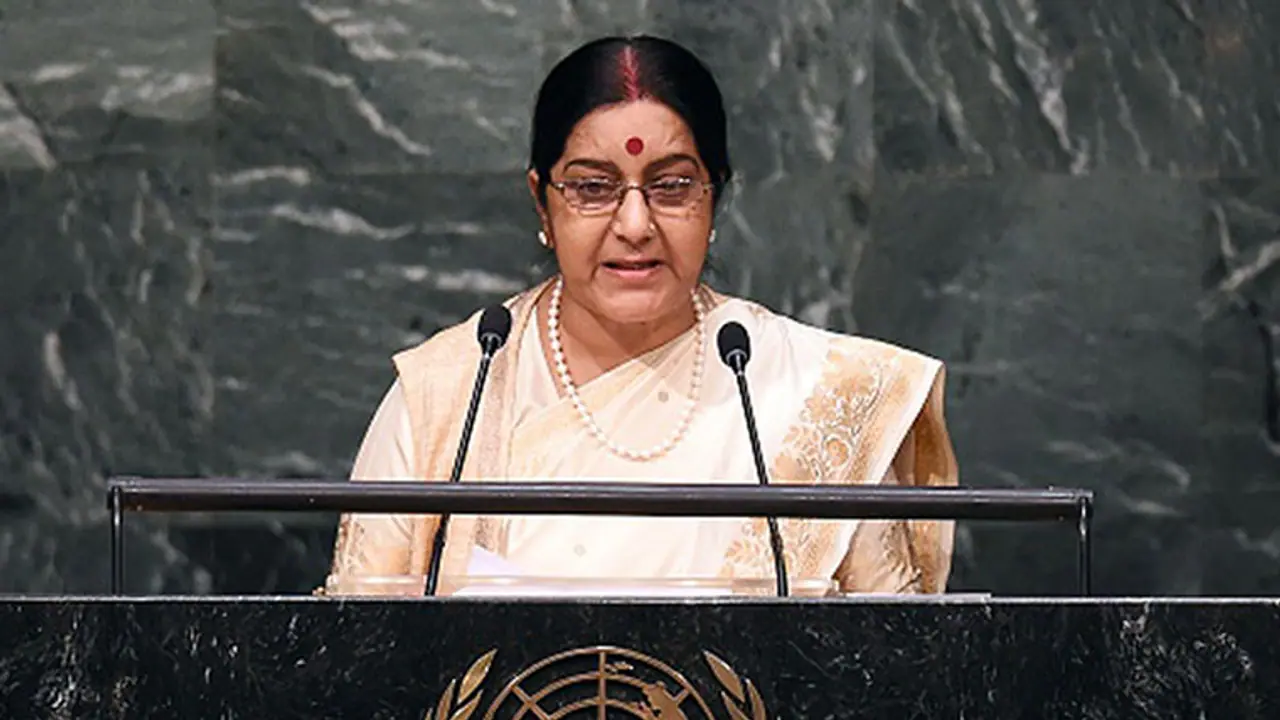In a sharp rebuke to Prime Minister Nawaz Sharif's "tirade" on Kashmir, India today said those accusing others of rights violations must introspect as it censured Pakistan for the first time at the UNGA for perpetrating the "worst form of state oppression" in Balochistan.

Taking a veiled dig at Pakistan, External Affairs Minister Sushma Swaraj in her address at the 71st UN General Assembly (UNGA) session said there are nations "in our midst" where UN designated terrorists roam freely and deliver "their poisonous sermons of hate with impunity", an apparent reference to Mumbai attack mastermind and Jamaat-ud-Dawa chief Hafiz Saeed.
She also made a strong pitch for isolating such nations who speak the language of terrorism and for whom sheltering terrorists has become "their calling card".
"In our midst, there are nations that still speak the language of terrorism, that nurture it, peddle it, and export it. To shelter terrorists has become their calling card. We must identify these nations and hold them to account," Swaraj asserted in her nearly 20-minute speech.
"These nations, in which UN designated terrorists roam freely, lead processions and deliver their poisonous sermons of hate with impunity, are as culpable as the very terrorists they harbour. Such countries should have no place in the comity of nations," Swaraj said, in essence making a call to the international community to isolate such nations.
In a strong rebuttal of the "baseless allegations" made by Sharif from the podium of the General Assembly about human rights violations by India in Kashmir, Swaraj said, "I can only say that those accusing others of human rights violations would do well to introspect and see what egregious abuses they are perpetrating in their own country, including in Balochistan. The brutality against the Baloch people represents the worst form of state oppression."
Highlighting the two pending tasks of General Assembly, External Affairs Minister Sushma Swaraj said despite the passage of two decades, the Comprehensive Convention on International Terrorism, which was proposed by India in 1996, is yet to be implemented.
"...we will be judged by our action and equally by our inaction. What goals have we achieved and what objectives remain unfulfilled?," she said.
"As a result, we are unable to develop a norm under which terrorists shall be prosecuted or extradited. Therefore it is my appeal that this General Assembly acts with fresh resolve and urgency to adopt this critical Convention," she said.
On Security Council reform, Swaraj said just as the world needs a more contemporary approach to combating terrorism, there is also a need for a Security Council that is less outdated and that continues to reflect the world order of an earlier era.
"The vast majority of nations share the belief that the UN should not remain frozen in 1945, just to serve the interests of a few. Whether it is institutions or issues, we must come to terms with present day realities and the challenges that confront us," she said.
Swaraj added that an expansion in the Permanent and non-Permanent membership of the Council to reflect contemporary realities is an urgent necessity.
"We must move forward substantively towards text-based negotiations. If both these long pending issues are addressed during your Presidency, the success of this Session will be ensured," she said.
"The 21st century has begun in the shadow of turmoil, but we can turn this into a golden age in the history of civilisation through united and concerted efforts. But what happens tomorrow will depend on what we do today," she said.
